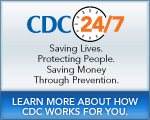Treatments
CDC has provided the information on this page because it may be of interest to you. CDC does not necessarily endorse the views or information presented. CDC cannot answer personal medical questions. Please talk to your health care professional about specific questions concerning appropriate care, treatment, or other medical advice.
No two people with an FASD are exactly alike. FASDs can include physical or intellectual disabilities, as well as problems with behavior and learning. These symptoms can range from mild to severe. Treatment services for people with FASDs should be different for each person depending on the symptoms.
Early Intervention Services
There is no cure for FASDs, but research shows that early intervention treatment services can improve a child's development. Early intervention services help children from birth to 3 years of age (36 months) learn important skills. Services include therapy to help the child talk, walk, and interact with others. Therefore, it is important to talk to your child's doctor as soon as possible if you think your child has an FASD or other developmental problem.
Even if your child has not received a diagnosis, he or she might qualify for early intervention treatment services. The Individuals with Disabilities Education Act (IDEA) says that children younger than 3 years of age who are at risk of having developmental delays may be eligible for services. The early intervention system in your state will help you have your child evaluated and provide services if your child qualifies.
In addition, treatment for particular symptoms, such as speech therapy for language delays, often does not need to wait for a formal diagnosis.
Learn more about child development, milestones, and delays »
Learn more about early intervention »
Protective Factors
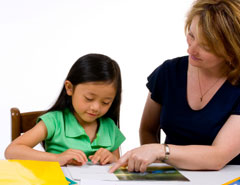
Studies have shown that some protective factors can help reduce the effects of FASDs and help people with these conditions reach their full potential.1 Protective factors include:
- Early diagnosis
A child who is diagnosed at a young age can be placed in appropriate educational classes and get the social services needed to help the child and his or her family. Early diagnosis also helps families and school staff to understand why the child might act or react differently from other children sometimes. - Involvement in special education and social services
Children who receive special education geared towards their specific needs and learning style are more likely to reach their full potential. Children with FASDs have a wide range of behaviors and challenges that might need to be addressed. Special education programs can better meet each child's needs. In addition, families of children with FASDs who receive social services, such as counseling or respite care have more positive experiences than families who do not receive such services. - Loving, nurturing, and stable home environment
Children with FASDs can be more sensitive than other children to disruptions, changes in lifestyle or routines, and harmful relationships. Therefore, having a loving, stable home life is very important for a child with an FASD. In addition, community and family support can help prevent secondary conditions, such as criminal behavior, unemployment, and incomplete education. - Absence of violence
People with FASDs who live in stable, non-abusive households or who do not become involved in youth violence are much less likely to develop secondary conditions than children who have been exposed to violence in their lives. Children with FASDs need to be taught other ways of showing their anger or frustration.
Types of Treatments
Many types of treatments are available for people with FASDs. They can generally be broken down into five categories:
Medical Care
People with FASDs have the same health and medical needs as people without FASDs. Like everyone else, they need well-baby care, vaccinations, good nutrition, exercise, hygiene, and basic medical care. But, for people with FASDs, concerns specific to the disorder must also be monitored and addressed either by a current doctor or through referral to a specialist. The types of treatments needed will be different for each person and depend upon the person's symptoms.
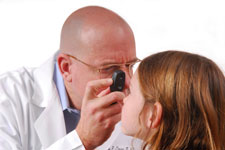 Types of medical specialists might include:
Types of medical specialists might include:
- Pediatrician
- Primary care provider
- Dysmorphologist
- Otolaryngologist
- Audiologist
- Immunologist
- Neurologist
- Mental health professionals (child psychiatrist and psychologist, school psychologist, behavior management specialist)
- Opthalmologist
- Plastic surgeon
- Endocrinologist
- Gastroenterologist
- Nutritionist
- Geneticist
- Speech-language pathologist
- Occupational therapist
- Physical therapist
Medication
No medications have been approved specifically to treat FASDs. But, several medications can help improve some of the symptoms of FASDs. For example, medication might help manage high energy levels, inability to focus, or depression.
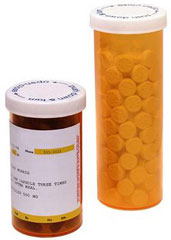 Following are some examples of medications used to treat FASD symptoms:
Following are some examples of medications used to treat FASD symptoms:
- Stimulants
This type of medication is used to treat symptoms such as hyperactivity, problems paying attention, and poor impulse control, as well as other behavior issues. - Antidepressants
This type of medication is used to treat symptoms such as sad mood, loss of interest, sleep problems, school disruption, negativity, irritability, aggression, and anti-social behaviors. - Neuroleptics
This type of medication is used to treat symptoms such as aggression, anxiety, and certain other behavior problems. - Anti-anxiety drugs
This type of medication is used to treat symptoms of anxiety.
Medications can affect each child differently. One medication might work well for one child, but not for another. To find the right treatment, the doctor might try different medications and doses. It is important to work with your child's doctor to find the treatment plan that works best for your child.
Behavior and Education Therapy
Behavior and education therapy can be an important part of treatment for children with FASDs. Although there are many different types of therapy for children with developmental disabilities, only a few have been scientifically tested specifically for children with FASDs.
Following are behavior and education therapies that have been shown to be effective for some children with FASDs:
- Friendship training
Many children with FASDs have a hard time making friends, keeping friends, and socializing with others. Friendship training teaches children with FASDs how to interact with friends, how to enter a group of children already playing, how to arrange and handle in-home play dates, and how to avoid and work out conflicts. A research study found that this type of training could significantly improve children's social skills and reduce problem behaviors.2 - Specialized math tutoring
A research study found that special teaching methods and tools can help improve math knowledge and skills in children with FASDs.3 - Executive functioning training
This type of training teaches behavioral awareness and self-control and improves executive functioning skills, such as memory, cause and effect, reasoning, planning, and problem solving. - Parent-child interaction therapy
This type of therapy aims to improve parent-child relationships, create a positive discipline program, and reduce behavior problems in children with FASDs. Parents learn new skills from a coach. A research study found significant decrease in parent distress and child behavior problems. - Parenting and behavior management training
The behavior and learning problems that affect children with FASDs can lead to high levels of stress for the children's parents. This training can improve caregiver comfort, meet family needs, and reduce child problem behaviors.
Learn more about these behavior and education therapies »
Learn more about the research studies behind these therapies »
Parent Training
Children with FASDs might not respond to the usual parenting practices. Parent training has been successful in educating parents about their child's disability and about ways to teach their child many skills and help them cope with their FASD-related symptoms. Parent training can be done in groups or with individual families. Such programs are offered by therapists or in special classes.
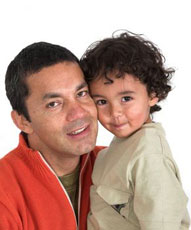 Although each child is unique, the following parenting tips can be helpful:4
Although each child is unique, the following parenting tips can be helpful:4
- Concentrate on your child's strengths and talents
- Accept your child's limitations
- Be consistent with everything (discipline, school, behaviors)
- Use concrete language and examples
- Use stable routines that do not change daily
- Keep it simple
- Be specific-say exactly what you mean
- Structure your child's world to provide a foundation for daily living
- Use visual aides, music, and hands-on activities to help your child learn
- Use positive reinforcement often (praise, incentives)
- Supervise: friends, visits, routines
- Repeat, repeat, repeat
Families might need support from a family counselor or therapist. Parents might also benefit from local support groups, in which parents of children with FASDs can discuss concerns, ask questions, and find encouragement.
Check with one of the following resources to find support in your area:
National and State Resource Directory from the National Organization on Fetal Alcohol Syndrome (NOFAS)
Family Empowerment Network (FEN) - Call 1-800-462-5254 for referrals to services
FASD State Systems of Care from the Substance Abuse and Mental Health Services Administration (SAMHSA) FASD Center for Excellence
Alternative Approaches
With any disability, injury, or medical condition, many untested therapies become known and are promoted by informal networks. These therapies are referred to as alternative treatments. Before starting such a treatment, check it out carefully, and talk to your child's doctor. Your child's doctor will help you weigh the risks and benefits of these therapies.
Some of the alternative treatments used for people with FASDs include:
- Biofeedback
- Auditory training
- Relaxation therapy, visual imagery, and meditation (especially for sleep problems and anxiety)
- Creative art therapy
- Yoga and exercise
- Acupuncture and acupressure
- Massage, Reiki, and energy healing
- Vitamins, herbal supplements, and homeopathy
- Animal-assisted therapy
References
- Streissguth, A.P., Barr, H.M., Kogan, J. & Bookstein, F. L., Understanding the occurrence of secondary disabilities in clients with fetal alcohol syndrome (FAS) and fetal alcohol effects (FAE). Final report to the Centers for Disease Control and Prevention (CDC). Seattle: University of Washington, Fetal Alcohol & Drug Unit; August 1996. Tech. Rep. No. 96-06.
- O'Connor, M.J., Frankel, F., Paley, B., Schonfeld, A.M., Carpenter, E., Laugeson E.A., et al. (2007). A controlled social skills training for children with fetal alcohol spectrum disorders. Journal of Consulting & Clinical Psychology, 74(4),639-648. [Read abstract]
- Kable, J. A., Coles, C. D., & Taddeo, E. (2007). Socio-cognitive habilitation using the math interactive learning experience program for alcohol-affected children. Alcoholism: Clinical & Experimental Research, 31(8), 1425-1434. [Read abstract]
- Mitchell, K. T. (2002). Fetal alcohol syndrome: Practical suggestions and support for families and caregivers. Washington, DC: National Organization on Fetal Alcohol Syndrome.

Contact Us:
- Centers for Disease Control and Prevention
National Center on Birth Defects and Developmental Disabilities
Division of Birth Defects and Developmental Disabilities
1600 Clifton Road
MS E-86
Atlanta, GA 30333 - 800-CDC-INFO
(800-232-4636)
TTY: (888) 232-6348 - New Hours of Operation
8am-8pm ET/Monday-Friday
Closed Holidays - cdcinfo@cdc.gov
